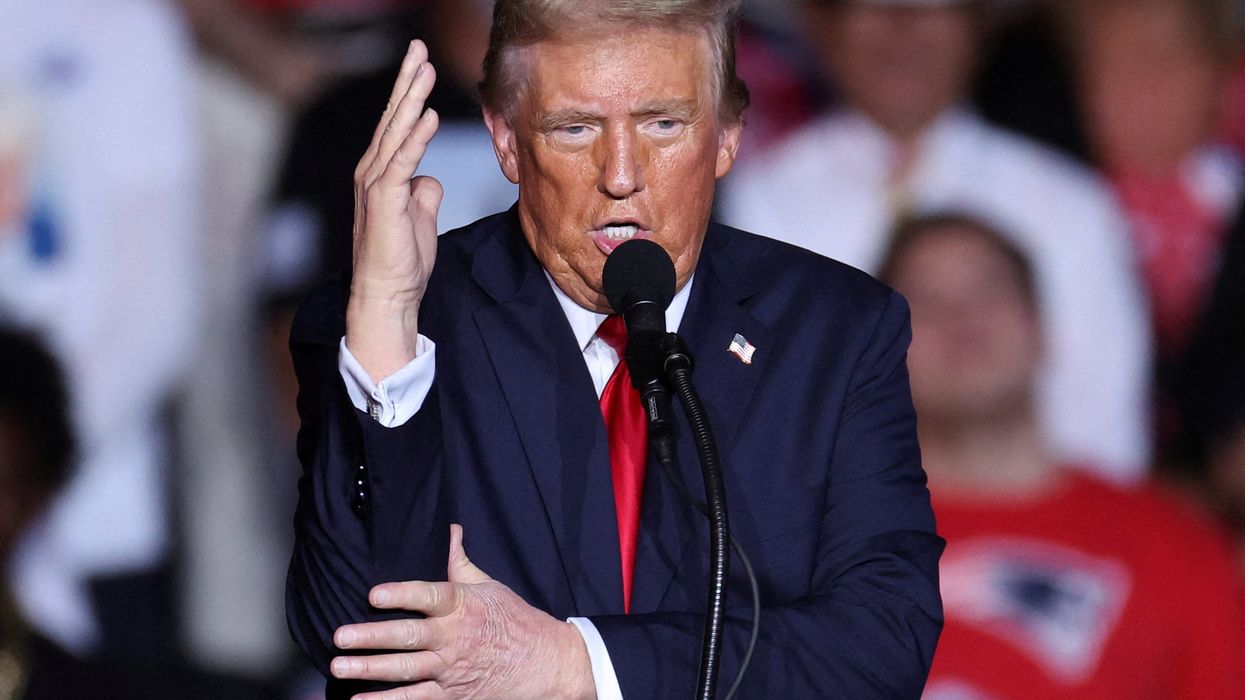An attorney who served on the United States Holocaust Memorial Council during President Donald Trump's first term says the president's defunding of the arts and attempts to rewrite history are straight out of an authoritarian playbook, according to a new piece in Time.
Andrew Weinstein was named by President Barack Obama to the U.S. Holocaust Memorial Council, which is the governing board for the United States Holocaust Memorial Museum and served through Trump's first administration until he and 15 of his colleagues on the President’s Committee on the Arts resigned in 2017 following Trump's "shocking refusal to unequivocally condemn the neo-Nazis and white supremacists in Charlottesville," he writes.
In their resignation letter to then-President Trump, they wrote that “supremacy, discrimination, and vitriol are not American values,” adding, “Your values are not American values.”
Silence, he says, would have made them "complicit in his hateful rhetoric."
Weinstein says that the current government shutdown is "the latest and most jarring blow in the Trump Administration’s long-running war against American culture."
"What America is experiencing now is the feature presentation, a systematic, full-frontal assault on our nation’s cultural and intellectual life," Weinstein says.
The defunding of the arts, Weinstein says, "is a strategy of erasure through fiscal starvation."
The Trump administration's proposed budget for Fiscal Year 2026 includes the elimination of the National Endowment of the Arts (NEA), the National Endowment for the Humanities (NEH) and the Institute of Museum and Library Services.
"This long-threatened starvation has become reality, forcing the closure of national museums and halting federal grant payments to cultural groups nationwide," Weinstein says.
Another huge concern, he writes, is Trump's "strategy of institutional capture" in which he has named himself as chair of the John F. Kennedy Center for the Performing Arts, "purging its bipartisan board, replacing it with political loyalists."
The Kennedy Center, Weinstein says, "is being transformed from a national stage for artistic excellence into a political trophy."
On the first day of the shutdown, the White House fired 22 of the 26 members of the National Council on the Humanities, the expert body that advises the NEH, leaving it without the quorum required to conduct business and clearing the path for politically motivated grant-making, Weinstein explains.
Trump's attempts to rewrite history to ignore America's painful truths is another alarm, Weinstein says. "The president himself has complained that our museums focus too much on 'how bad slavery was,'" he notes.
"At the same time, the Trump Administration has declared war on our nation’s memory. Under the Orwellian banner of an executive order to 'Restore Truth and Sanity to American History,' the White House has launched a comprehensive review of the Smithsonian Institution," he writes.
These actions, Weinstein says, are already causing irreparable harm.
"The chilling effect is already palpable: in an act of protest, the acclaimed artist Amy Sherald recently canceled her upcoming exhibition at the National Portrait Gallery, citing censorship concerns," he writes. "This sustained attack on our cultural institutions creates the conditions for overt acts of censorship."
By silencing artists and historians, "a regime seeks to control not just the present, but the past and the future as well," he notes.
What's going on in the United States under Trump, Weinstein says is a classic example of history repeating itself.
"This is not a uniquely American tragedy. It is the authoritarian playbook, page for page," he writes.
"When a leader seizes control of cultural institutions to enforce ideological conformity, we see a direct parallel to the tactics of Viktor Orbán in Hungary," Weinstein adds. "Authoritarians always target art first."
Weinstein and his colleagues resigned in 2017, he writes, "because our conscience demanded it." Today, however, it's starkly different.
"Today, as a government shutdown darkens our national museums and the National Endowment for the Humanities is gutted, the danger is no longer a matter of rhetoric but of radical, systemic action," he says.
"This assault threatens our ability to think critically, remember our past honestly, and imagine a future that is not dictated by the state. This is a battle for the American soul, and for the sake of the freedoms, it is a battle we must not lose."


